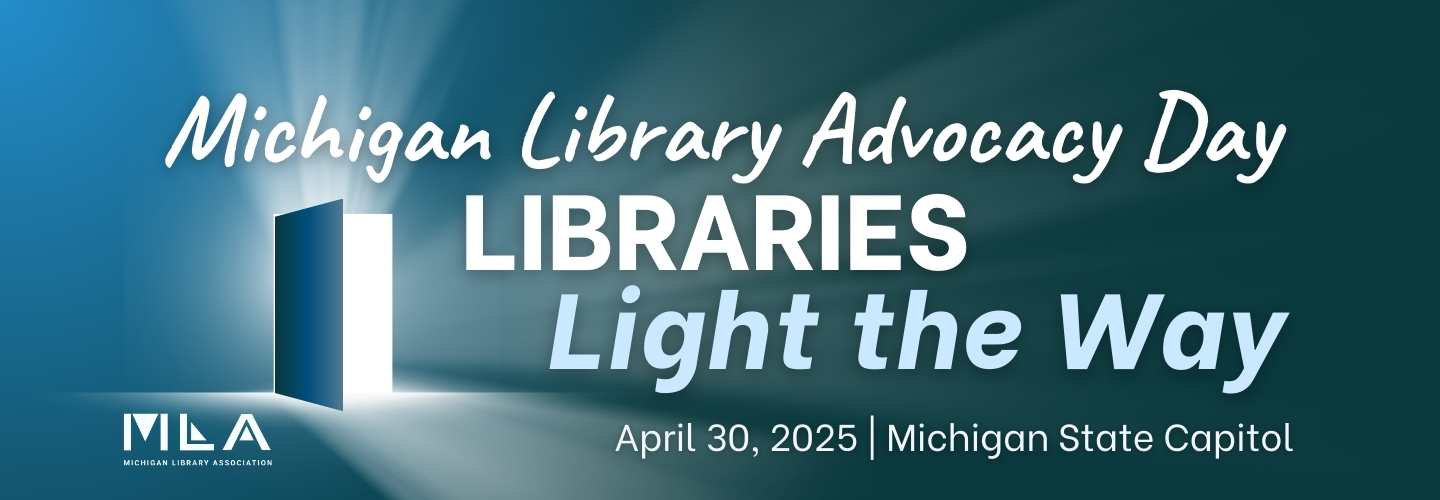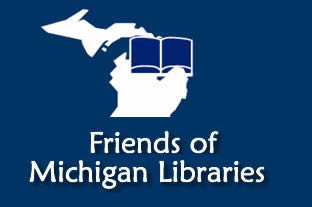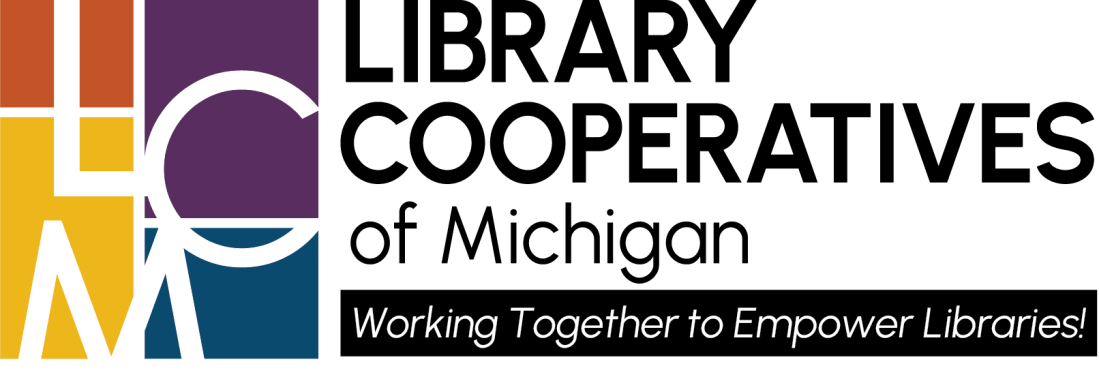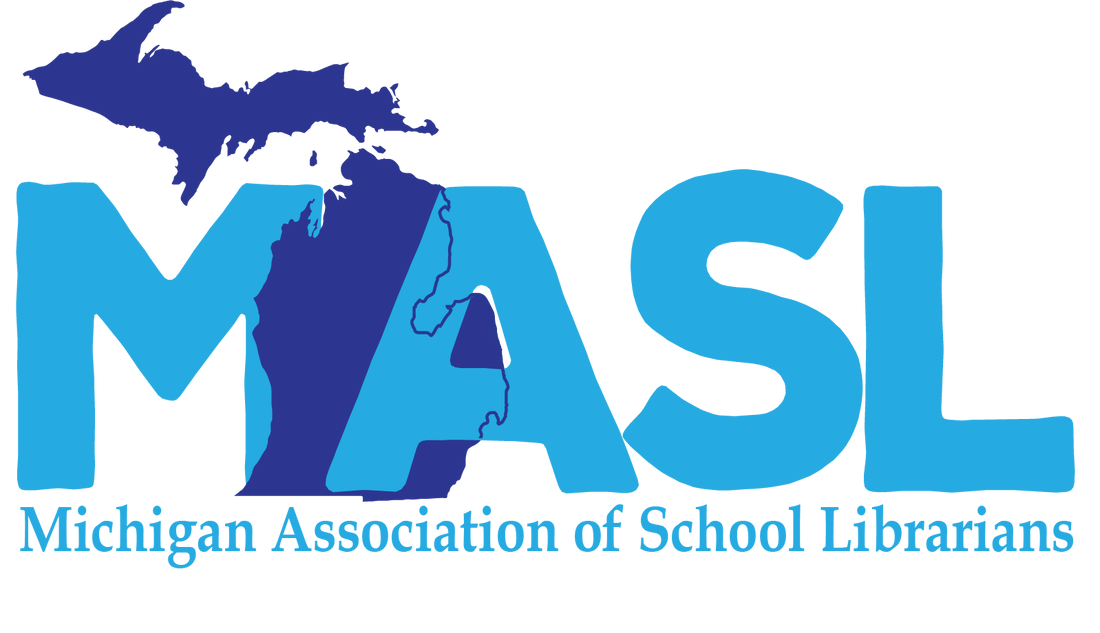|

Michigan Library Advocacy Day Home | Registration And Hotel Information | Schedule | Speakers | Talking Points and Resources | Training For Advocates | How to Conduct a Legislative Meeting | Frequently Asked Questions | Sponsor and Partner Opportunities
Michigan Library Advocacy Day 2025 Meetings
How to Conduct a Legislative Meeting
Michigan Library Advocacy Day offers valuable opportunities for MLA members to:
- Initiate, develop, and maintain relationships with state legislators.
- Influence legislation that impacts libraries.
- Raise the visibility of the library profession through face-to-face meetings with public officials.
At Michigan Library Advocacy Day, library supporters will meet with legislators to advocate for support of legislation that address some of the most important issues facing Michigan libraries – increased funding, the impact of Headlee rollback on library millages, and the freedom to read.
Incorporating the tips provided below coupled with the talking points provided by MLA will help you develop a persuasive narrative to convey our legislative priorities and ensure a successful visit. As you meet with legislators, remember that you are the expert! As librarians and library professionals, you are well equipped to share how libraries provide important benefits to the community.
Five Key Steps to a Successful Meeting
Goal: 30 minutes maximum
1. Introduce yourself.
- Briefly give your name, where you live, and where you work. Legislators are more interested in hearing from voters from their districts but if the library you work at is located in their district, they will want to know this too. (As a representative of the library, you provide important services to the district, including economic development, local jobs, revenue, and community development services.)
- Most meetings will have no more than four advocates in attendance. If you are meeting your legislator in a larger group, speakers and their roles should be identified in advance. (See below for more information.)
2. State the issues.
- Indicate the issues you wish to discuss from MLA’s talking points.
- Share why the issues are important to you, your library and your community.
- State why the issue is important to the legislators (e.g., what impact it has in his or her district).
3. Highlight and share personal stories.
- Share personal stories, which help legislators understand how the issue affects constituents in their districts.
- Discuss the problem by using supporting research and data, then demonstrate how the legislation addresses that problem.
- Explain how libraries are a part of the solution and how they are able to address the problem or community issue?
- Let the legislator know that you are available as a resource to help with issues in their district.
4. Ask for the member’s position on the issue.
- Present your “ask.” You must state a clear, concise and specific “ask”. This is the most important part of your meeting and is associated with MLA priority issues.
- Determine the legislators’ views on what you have presented. Ask if they can support your position.
- The “ask” also gives you a reason to follow-up with the legislator at a later date, a way to stay in touch with the office and continue to build a relationship.
5. Thank the member and/or staff for their time.
- Express hope that this is the beginning of a productive relationship.
- Tell them that you would like to continue a dialogue on the issue; ask if you may write or call about the issue in the future. Bring a business card to give to them.
- Ask to be added to the legislator’s mailing list.
- Ask about the best way to follow up on the meeting. oInvite the legislator or staff to visit the library. Legislators are interested in having a better understanding and seeing specific spaces in their districts. oInvite the legislator or staff to speak at an event you are holding or get a quote for an article/news release.
Remember to leave them with the MLA talking points which will be provided to you.
Keep these tips and tricks in mind to effectively communicate your message:
- Remain on message by sticking to the talking points prepared by MLA.
- Use local examples to illustrate your points.
- Be prepared to have sound reasons to reinforce your position.
- Avoid jargon as they may not be familiar with the legislation or the library profession.
- Never lie. It is ok to say you don’t know the answer to their question, but you will be happy to follow up with them afterward.
- Keep the dialogue respectful, especially when you are unable to achieve the desired result or response from the legislator.
- Don’t lecture to the legislator. They may know more about an issue than you realize.
Group Meetings
One of the most important things to consider when meeting with a larger group of advocates (more than four) is to meet prior to the legislative visit and to assign roles and responsibilities. MLA will help facilitate a meeting a week or two prior to Advocacy Day if there are more than four individuals who will be in attendance at any meeting. Generally, these are the roles that should be assigned, and not everyone will have a chance to talk.
- Leader: Initiate introductions of participants. This person would give a brief overview of the day and MLA.
- Issue Presenter: Present talking points based on MLA key messages. These can be presented by one or more individuals.
- Personal Story Presenter: Identify someone in your group that can provide a personal story connecting the key issues.
- Secretary: Have one person taking notes on any feedback that was given by the legislator. Do they support, oppose, need more information, or any other detail that would be important for follow up?
|









